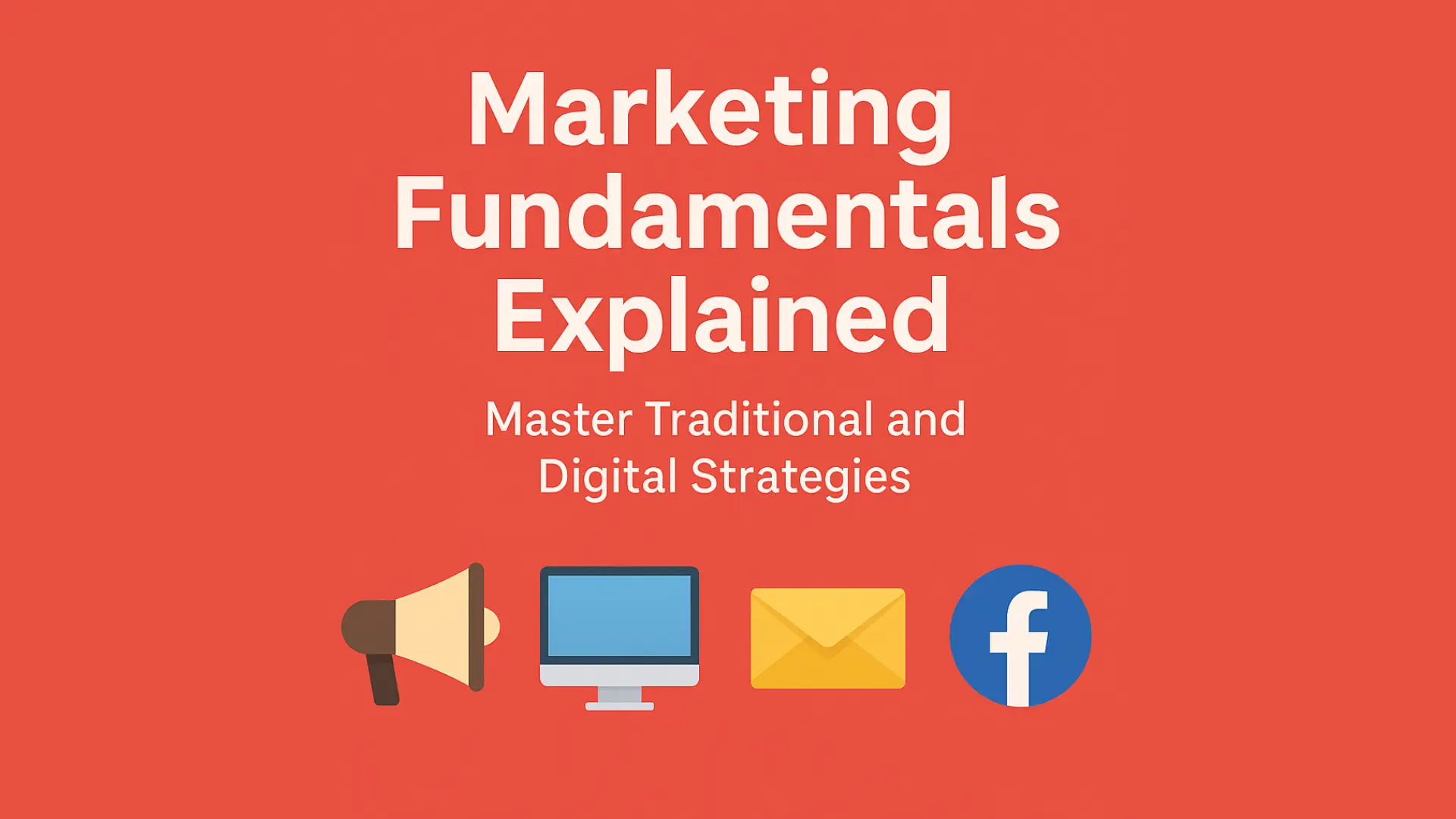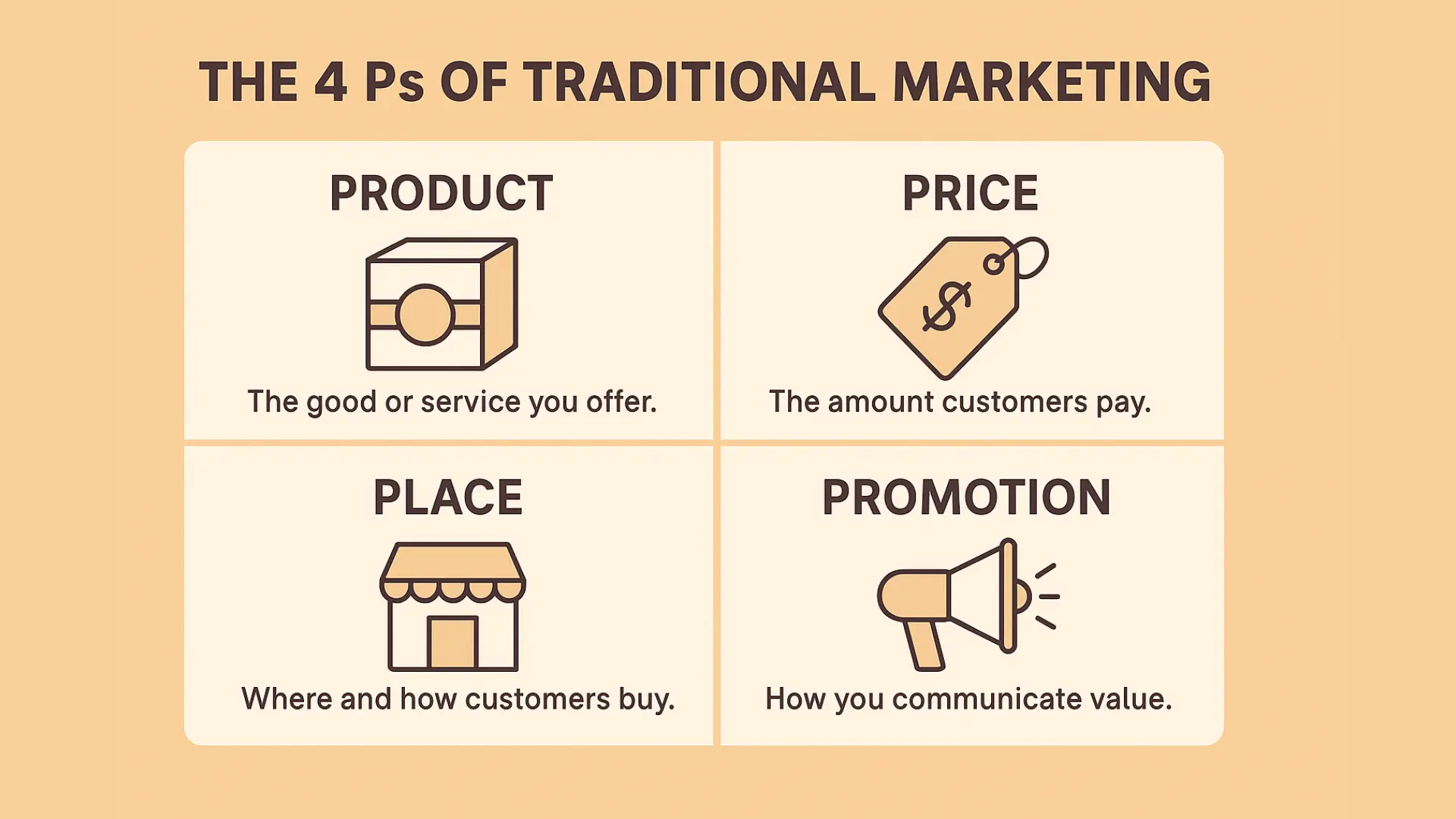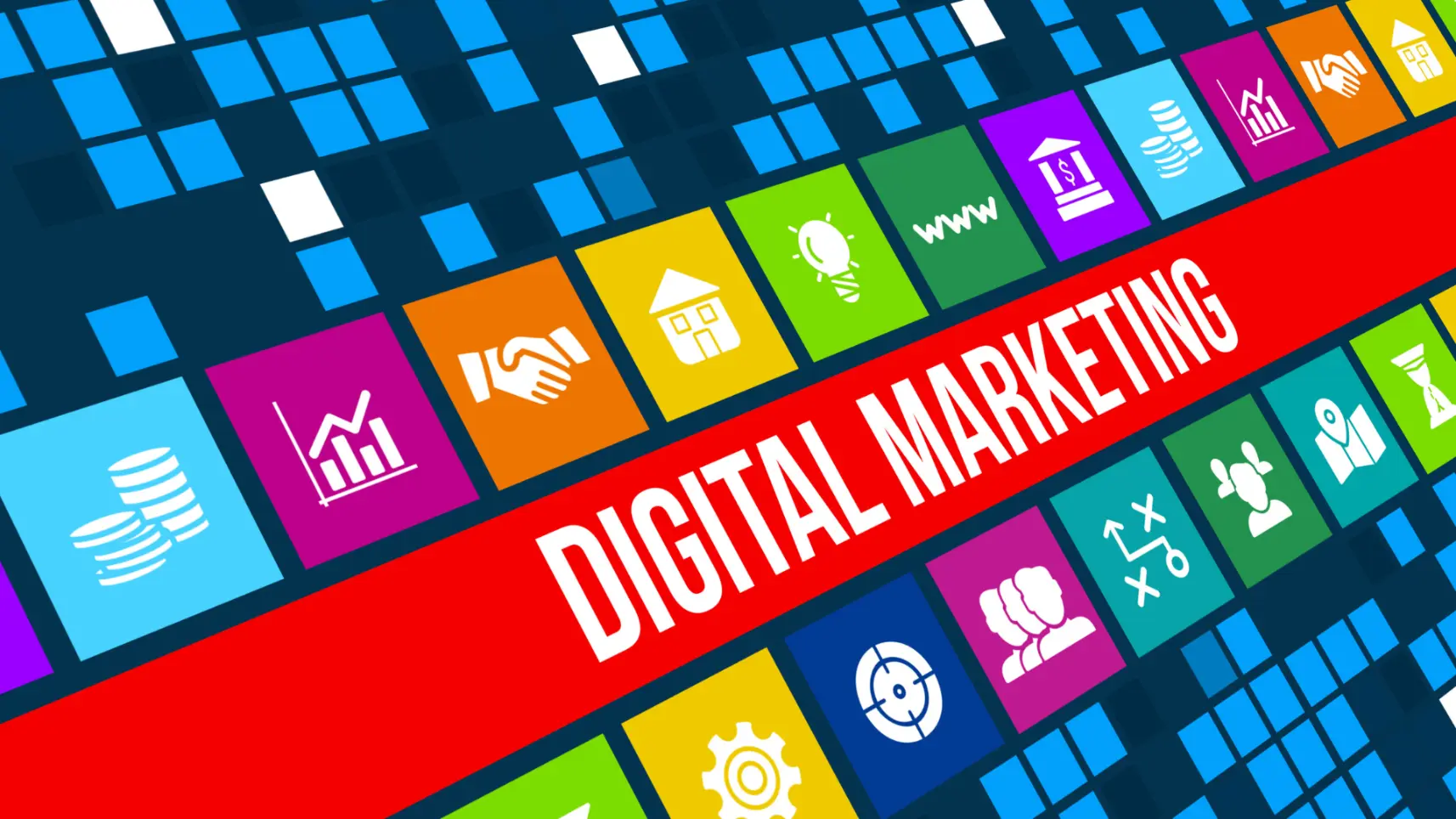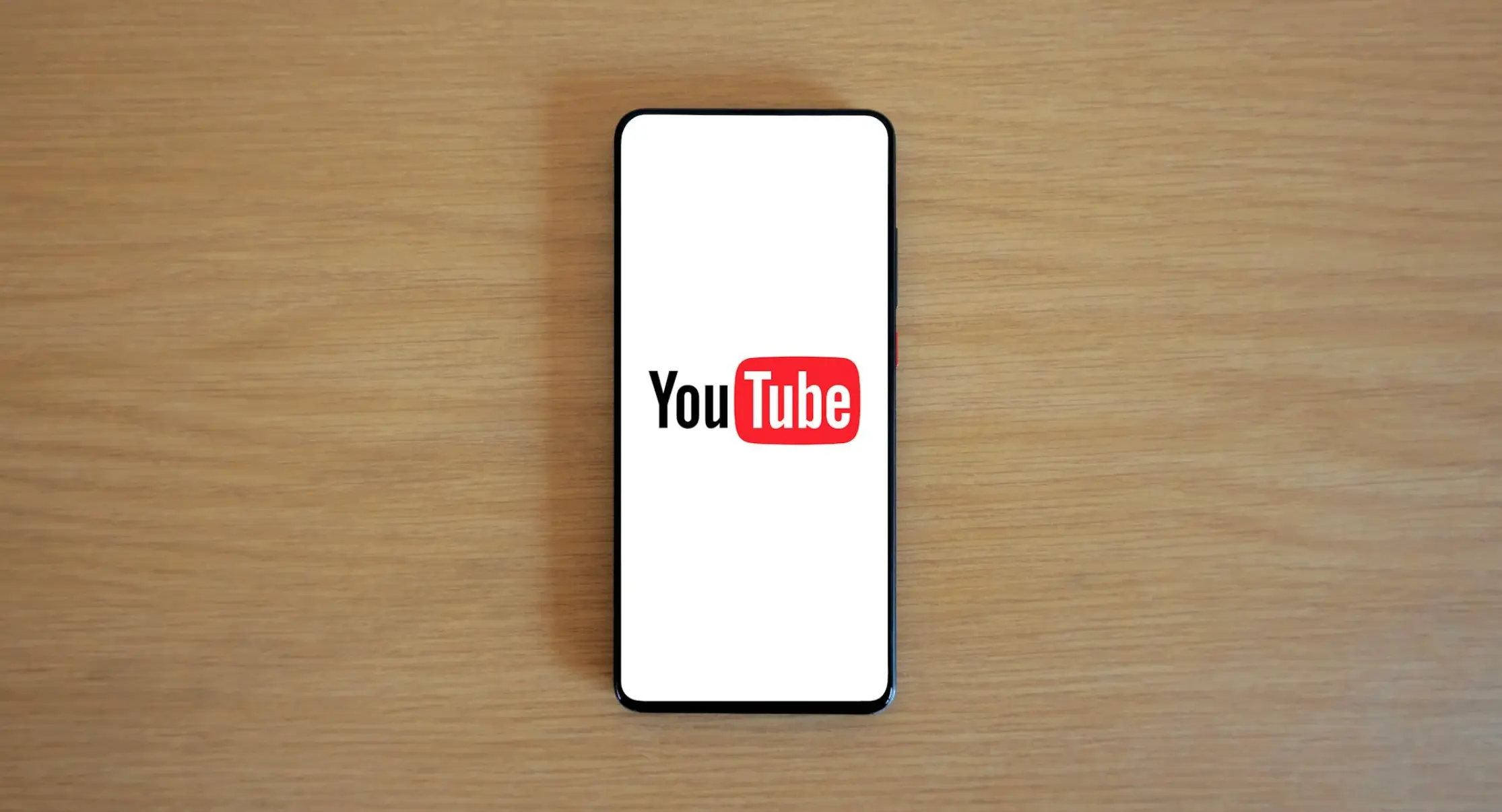Marketing Fundamentals Explained: Master Traditional and Digital Strategies
Updated on
Published on

Marketing fundamentals are the core principles and strategies that drive successful marketing campaigns, whether you’re promoting a small local business or a global brand. In essence, marketing encompasses all the activities a company uses to promote its products or services and engage with customers. This ranges from researching your market and understanding customer needs to crafting messages and delivering them through various channels. A successful strategy depends on knowing your audience, analyzing consumer behavior, and acting on that knowledge to meet your business objectives. By learning the fundamentals of marketing, you gain a toolkit of techniques to effectively reach and influence your target audience.
For a quick overview, see the infographic below which highlights key marketing fundamentals – from the traditional 4Ps to digital marketing channels – along with tips like focusing on content and staying current with trends. As the visual suggests, mastering the basics provides a strong foundation for any marketing plan. In the sections that follow, we’ll dive deeper into each of these fundamental concepts in both traditional and digital marketing.
The 4Ps of Traditional Marketing
One classic framework for marketing fundamentals is the marketing mix, famously summarized as the 4Ps: Product, Price, Place, Promotion. By carefully planning each “P,” marketers craft cohesive strategies that meet customer needs and business goals.
- Product: Understand the goods or services you’re selling, including features, benefits, and packaging. Clarify how your product solves a customer problem and ensure design and branding support that message.
- Price: Set a value that reflects both market demand and profitability. Consider competitor pricing and perceived customer value, and decide whether strategies like discounts or premium pricing fit your brand.
- Place: Determine where and how customers will buy your product—online, in-store, through distributors, or a combination. Ensure your distribution matches customer preferences and supports a seamless experience.
- Promotion: Communicate your product’s value through advertising, public relations, sales promotions, social media, content marketing, and email. Choose channels that reach your audience effectively and align messaging across them.
These 4Ps work together: a luxury product demands a higher price, premium promotion, and carefully selected places for distribution. Managing the mix holistically ensures consistent brand identity and customer satisfaction.
(Many marketers extend the mix to include People, Process, and Physical Evidence, especially in service industries, but the 4Ps remain the core of most marketing fundamentals.)

Digital Marketing Fundamentals: Content, Social Media & More
Modern marketers apply the fundamentals of digital marketing to reach audiences where they spend time online. Key digital marketing fundamentals include:
Content Marketing
Creating valuable blog posts, videos, podcasts, or infographics that inform or entertain builds trust and positions your brand as an expert. Quality content also fuels SEO, social sharing, and lead nurturing.
With a careful seasonal trends integration in every campaign, your message can stay relevant and connect with what your audience is currently thinking about. This approach also helps maintain steady engagement as interests shift throughout the year.
Social Media Marketing
Engage audiences on platforms like Instagram, TikTok, LinkedIn, or X. Share content, offer customer support, and build community. Partnering with influencers can extend reach and add credibility.
If you’re running multiple brand profiles or client accounts, separating logins into isolated browser profiles can help reduce lockouts and cross-account flags.
Search Engine Optimization (SEO)
Optimize websites and content so they rank higher for relevant searches. Effective SEO research identifies keywords—such as “marketing fundamentals,” “digital marketing fundamentals,” and “fundamentals of digital marketing”—that match user intent, driving organic traffic without paying for ads.
Email Marketing
Collect subscriber emails and send newsletters, product updates, and special offers. Email remains one of the highest-ROI channels when messages are personalized and valuable especially when supported by email campaign management services that ensure timely delivery, optimized content, and measurable results.
Analytics and Customer Data
Track metrics like traffic, conversions, and engagement to refine strategies. Data-driven decisions ensure resources focus on tactics that work and messages that resonate.
Influencer Marketing
Partner with creators whose followers mirror your target audience. Authentic endorsements from trusted voices act as modern word-of-mouth, enhancing reach and trust.
Affiliate Marketing
Reward partners who drive traffic or sales with commissions. This performance-based model is cost‑effective and extends your sales force virtually.

Real-World Applications and Tips
For Small Businesses
- Define a niche and unique value proposition.
- Leverage low-cost digital tools like social profiles and email newsletters.
- Encourage word-of-mouth through excellent service and referral programs.
- Use basic analytics to double down on what works.
- Collaborate locally with complementary businesses for cross‑promotion.
For Large Businesses
- Maintain brand consistency across global teams and channels.
- Invest in advanced analytics and automation to personalize at scale.
- Blend traditional success with digital innovation (e.g., TV ads plus TikTok content).
- Foster continuous learning within the marketing team.
- Monitor reputation and practice transparent, responsible marketing.
Current Trends in Digital Marketing Fundamentals
- AI and Automation: Chatbots, predictive analytics, and generative content creation streamline campaigns.
- First-Party Data: Privacy regulations push brands to rely on consent‑based data for personalization.
- Short-Form Video: TikTok, Reels, and Shorts dominate engagement with snackable content.
- Micro-Influencers: Partnerships with niche creators yield higher trust and conversions.
- Omnichannel Experiences: Seamless integration of online and offline touchpoints enhances customer journeys.
- Quality and E‑E‑A‑T: Search engines reward content demonstrating Experience, Expertise, Authoritativeness, and Trustworthiness.
Frequently Asked Questions
What are marketing fundamentals?
Marketing fundamentals are the core principles—like audience research, the 4Ps, and value communication—that guide all successful marketing efforts across channels.
What are the 4 Ps of marketing?
Product, Price, Place, and Promotion form the marketing mix, ensuring your offer meets customer needs and is communicated and delivered effectively.
How is digital marketing different from traditional marketing?
Digital marketing relies on online channels, precise targeting, interactive engagement, and real-time analytics, whereas traditional marketing uses offline media with broader reach and less precise measurement.
How can small businesses use digital marketing fundamentals effectively?
Start with a strong online presence, leverage social media and content marketing, build an email list, optimize for local SEO, and use analytics to refine low-cost campaigns.
Why is understanding marketing fundamentals important?
A solid grasp ensures strategic decisions, efficient resource use, and the ability to adapt tactics to changing tools and trends while maintaining consistent customer value.
The Future of Marketing
Whether you’re a student, entrepreneur, or seasoned marketer, mastering marketing fundamentals—from the 4Ps to fundamentals of digital marketing like content and SEO—equips you to navigate an ever-evolving landscape. Grounded in customer understanding and value creation, these timeless principles, paired with modern tools, position any brand for sustained success in today’s digital age.









